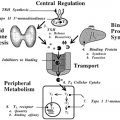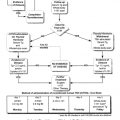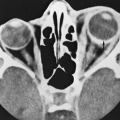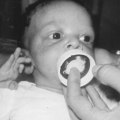CLINICAL FORMS OF RESISTANCE TO THYROID HORMONE
In 1967, a bizarre finding in two young deaf-mute patients was reported by Refetoff and coworkers.1 These patients had delayed bone ages and stippled epiphyses consistent with juvenile hypothyroidism but, paradoxically, significantly elevated levels of circulating thyroid hormones. It was concluded that these patients had a tissue-specific combination of hypothyroidism, hyperthyroidism, and euthyroidism. Because tissues such as bone and brain were judged to lack the appropriate sensitivity to the high levels of thyroid hormone and the patients failed to manifest other common symptoms and signs of hyperthyroidism, the proposal was made that the Refetoff patients were the first examples of thyroid hormone resistance.
Time has validated this conclusion. Many kindreds and sporadic patients with thyroid hormone resistance syndromes have been studied. The most common form of thyroid hormone resistance is called generalized resistance to thyroid hormone2 (Fig. 32-1). Patients with this form must satisfy three criteria: elevated serum levels of free thyroid hormones (i.e., free triiodothyronine [T3] and free thyroxine [T4]), inappropriately normal levels of serum thyroid-stimulating hormone (TSH), and clinical euthyroidism.
Patients with the syndrome of generalized resistance to thyroid hormone manifest a proportional decrease in sensitivity to thyroid hormone in the pituitary and many of the peripheral tissues. As manifested by the Refetoff patients, the degree of tissue sensitivity to thyroid hormone may vary. In other examples, patients with generalized resistance to thyroid hormone are affected in the brain (i.e., reduced intelligence quotient resulting in part from resistance) but have no evidence of resistance in the bone compartment (i.e., normal final adult height).2 The variable tissue resistances are reflected in the different phenotypes of generalized resistance to thyroid hormone. By definition, however, the patients lack the clinical signs and symptoms of hyperthyroidism, such as weight loss, heat intolerance, nervousness, and hyperkinesis, and the compensatory elevation of thyroid hormone is such that the patients do not have complaints of hypothyroidism. In 108 different kindreds with generalized resistance to thyroid hormone, most patients were identified after screening for goiter.2
Patients with the syndrome of generalized resistance to thyroid hormone manifest a proportional decrease in sensitivity to thyroid hormone in the pituitary and many of the peripheral tissues. As manifested by the Refetoff patients, the degree of tissue sensitivity to thyroid hormone may vary. In other examples, patients with generalized resistance to thyroid hormone are affected in the brain (i.e., reduced intelligence quotient resulting in part from resistance) but have no evidence of resistance in the bone compartment (i.e., normal final adult height).2 The variable tissue resistances are reflected in the different phenotypes of generalized resistance to thyroid hormone. By definition, however, the patients lack the clinical signs and symptoms of hyperthyroidism, such as weight loss, heat intolerance, nervousness, and hyperkinesis, and the compensatory elevation of thyroid hormone is such that the patients do not have complaints of hypothyroidism. In 108 different kindreds with generalized resistance to thyroid hormone, most patients were identified after screening for goiter.2
Stay updated, free articles. Join our Telegram channel

Full access? Get Clinical Tree







